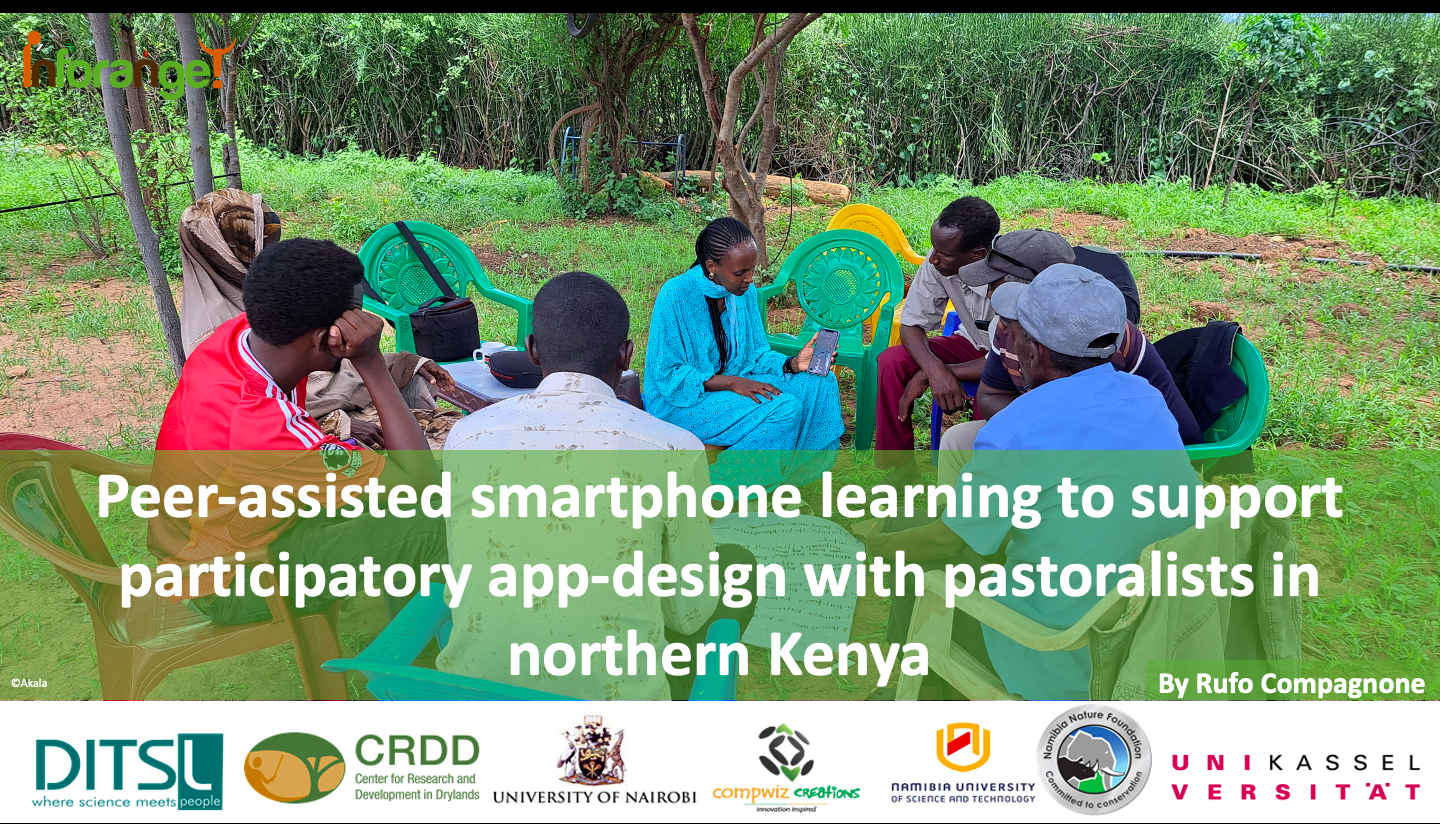Peer-Assisted Smartphone Learning to Support Participatory App-Design with Pastoralist Communities in Northern Kenya
On 20 November 2025, Rufo Roba Compagnone, PhD candidate from the InfoRange project, presented insights into her research, entitled “Peer-Assisted Smartphone Learning to Support Participatory App-Design with Pastoralist Communities in Northern Kenya”. In her presentation, she explained the need for evaluating co-design processes, in particular training, in order to improve on its outcomes. At the core of InfoRange lies the co-design of a rangeland monitoring app for pastoralists in Northern Kenya. It spans the introduction to smartphone operation with groups of pastoralists who had limited experience with smartphones and collecting their needs in early 2024, through smartphone training and co-design workshop sessions for design and development of the app, towards implementation and adaptation planned for early 2026. These activities continuously feed into the parallel technical app development. Ms Compagnone’s research specifically looks at evaluating how these processes support digital literacy and co-design processes in the communities. Several steps in evaluating the pastoralists’ learning outcomes and incorporating their suggestions for the app design and content were presented.
Sparking great interest amongst the 26 participants, several used the – as always lively – discussion to find out when the app would be available, whether it could be used outside of the research area, which languages it will support and how intuitive would be its use. Planned for release early in 2026, there will also be more input needed to finalise this product, outside of Ms Compagnone’s research. The discussion further touched upon broad issues, such as the access to internet and smartphones in Northern Kenya, cost-benefit decisions by the pastoralists, earlier attempts to introduce smartphone apps into the communities and the need to learn about IT matters from younger relatives in all cultures.
